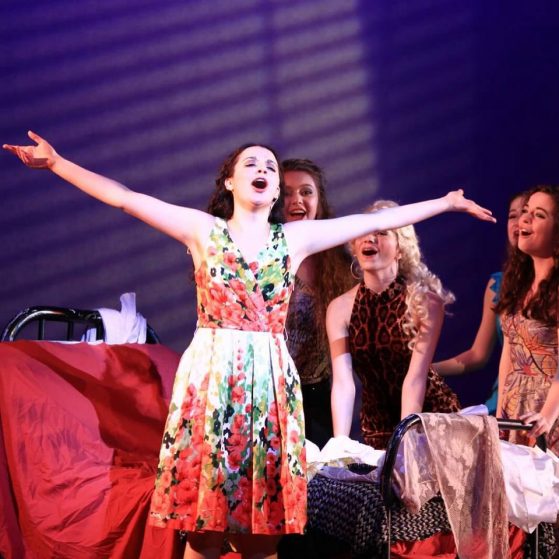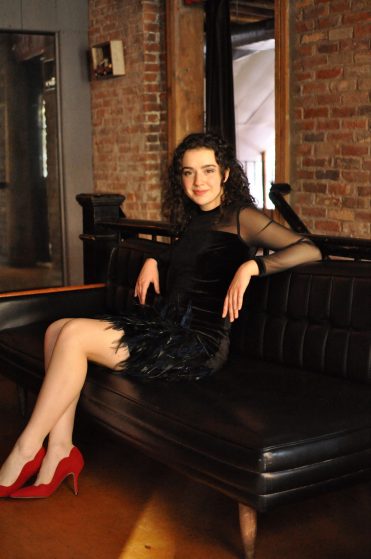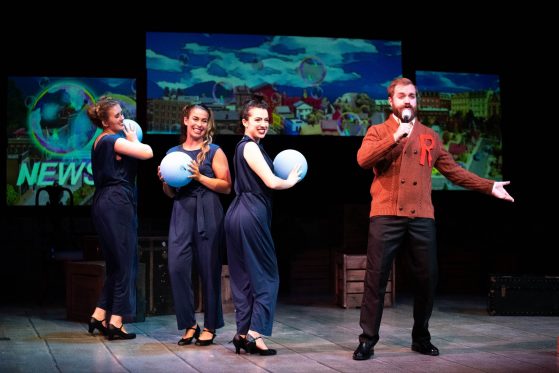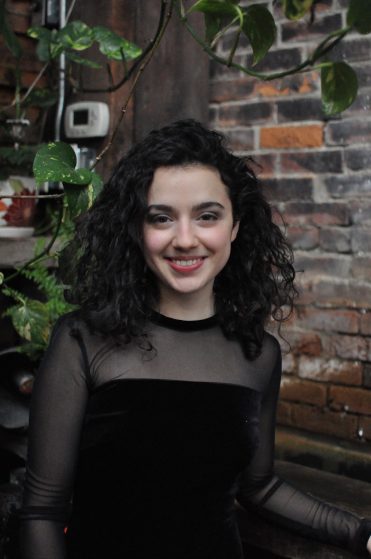Marissa Scotti is a soprano with a mission. Her voice has been called “rich and soaring” by The Altamont Enterprise but her music is about addressing real-world issues in a meaningful way.
Natasha Barbieri: What kind of music did you grow up listening to?
Marissa Scotti: I grew up listening to a lot of classic rock, 60s/70s folk, some New Wave. I was obsessed with Simon and Garfunkel, Joni Mitchell, The Beatles – I thought that was the only good stuff (I’m glad I grew out of that way of thinking!). The closest thing to classical singing that I enjoyed as a kid was golden age musical theatre. There was a while when I just wanted to be Barbra Streisand; I tried to be a natural belter when I was a teenager but it just wasn’t what my voice wanted to do, and I realized that quickly.
Natasha Barbieri: Can you describe one of your favorite onstage moments?
Marissa Scotti: In the summer of 2019 I was a studio artist with Pittsburgh Festival Opera, and we were staging a really special world premiere of ‘Mister Rogers’ Operas’. He was from Pittsburgh, so you can imagine the kind of sentimentality his legacy carries for Pittsburgh natives. It was my first time working in a professional setting, and between working with incredibly talented professionals, singing something totally new to the stage, and presenting it to the people who felt closest to the material, it was a very, very special experience.
Natasha Barbieri: Obviously as a young singer still, your voice will continue to develop, but can you share a little about your voice type especially for someone who may not be familiar with voice classifications?
Marissa Scotti: Right now my voice is growing, which is exciting, because there’s a lot of music I’d love to be able to sing in my life that requires a larger voice than I had about a year ago. I’m a soprano, somewhere between a lyric and lyric-coloratura, which means my voice sits comfortably in a high tessitura and I can move quickly from note to note, but it’s not as large as, say, the kind of dramatic soprano that would sing Wagner. I’m also not the highest or lightest of sopranos that might sing Olympia in ‘Les Contes d’Hoffman’. My teacher and I are thinking my voice might eventually be the type to sing light Verdi and Bel Canto roles, and currently I sing a lot of art song, as well as Mozart and contemporary opera roles.
Natasha Barbieri: Music to you is more than just for fun or distraction, there are very special causes that inspire. Can you share how this music with social advocacy began?
Marissa Scotti: I’ve always had a lot of climate anxiety – anxiety about climate change/pollution. That’s mostly where the social advocacy piece of my performing came in: I feel really conflicted pursuing anything without keeping in mind the urgency of protecting the environment. And in the face of movements like Black Lives Matter and #MeToo – truthfully, I sink into feelings of uselessness as a technique-obsessed singer if I’m not thinking about the context of art. As a student, I’m just trying to figure out how to be helpful as an artist, how to address relevant issues creatively. I’m realizing more and more that I just don’t care about performing for performing’s sake; it has to have an impetus for me. I’m finding this especially challenging to figure out in the realm of classical music, because it is an old art form, and I believe in it, but it’s more difficult to keep current than newer art forms.

Natasha Barbieri: We often hear the same (beloved) pieces over and over but there is so much great music to discover. Are there certain composers you wish we could hear more often?
Marissa Scotti: There are a lot of arias that I am so sick of hearing, and there are so many incredible composers that I’m discovering all the time. I just put on a recital with all women and black composers/poets- I completely fell in love with George Walker, Robert Owens and Lori Laitman. I’m also fascinated with Eastern European composers, like Janáček and Moniuszko. Most of the opera we are accustomed to hearing is in Italian and German, and there is such gorgeous repertoire in these languages, but I have been loving lesser heard operas like ‘Halka’, which is in Polish.
Natasha Barbieri: University is a large part of forming who we become as artists. What have been some of your favorite moments from your undergrad and what are some things you look forward to as you enter your Masters’ program this Fall?
Marissa Scotti: My favorite moments in undergrad are probably the two trips to Europe that I attended with our Chamber Choir. We were privileged to sing concerts in France and Ireland, in historic cathedrals and churches for locals. I love to travel, and I am so grateful to have gotten to travel for singing with so many of my friends. I’m looking forward to making friends in grad school, and making music with them. I am making it a goal to collaborate with as many people as possible – especially on new music.
Natasha Barbieri: Looking to the future what are some things you would like to accomplish?
Marissa Scotti: I would love to put on a chamber concert featuring all women performers, composers and poets in grad school. This is such a competitive field – especially for sopranos – and it’s very difficult for women artists to find their spot in the classical canon. I’d like to fight that by banding together.
Connect with Marissa online:
Instagram: @marissascottisoprano









